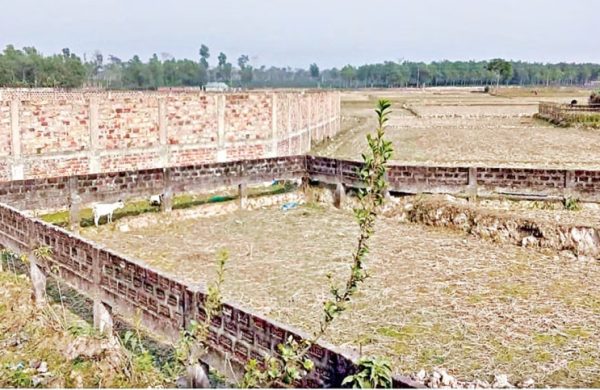Experts urge govt not to adopt ammonia, hydrogen power projects
- Update Time : Friday, December 13, 2024

TDS Desk
Experts have urged the Bangladesh government to refrain from adopting ammonia and hydrogen co-firing technologies, which critics say could extend the life of fossil fuel projects and hinder the country’s transition to renewable energy.
The warning came during a three-day conference “Bangladesh Energy Prosperity 2050” held in Dhaka today (13 December), where experts called for a focus on sustainable energy solutions aligned with global climate commitments.
Marika Kita, programme staff at the Japan Center for Sustainable Environment and Society (JACSES), advised Bangladesh against accepting Japan’s support for ammonia and hydrogen co-firing technologies, warning that these solutions would only prolong the life of fossil fuel projects in the country.
Speaking at the conference, Kita delivered a presentation titled “Japan’s Addiction to False Solutions.” In it, she outlined several recommendations aimed at steering Bangladesh toward more sustainable energy practices.
Kita criticised Japan’s Green Transformation (GX) strategy, which promotes thermal power generation technologies that mix ammonia and hydrogen or use single firing and carbon capture and storage (CCS).
She argued that Japan’s focus on such “innovative technologies” could delay necessary progress in reducing reliance on fossil fuels.
As part of its GX strategy, Japan aims to introduce 20% ammonia co-firing by 2030 and single firing by 2040, alongside utilities.
“I suggest Bangladesh not to accept the IEPMP master plan proposed by JICA, withdraw the ammonia/hydrogen co-firing proposal, and instead establish a path for significant renewable energy adoption based on a 2050 net-zero scenario,” Kita said.
Kita also highlighted that Japan’s promotion of these technologies contradicts the commitments made by G7 nations. The G7 pledged to “end new direct public financing for the international unabated fossil fuel sector by the end of 2022, except in limited circumstances clearly defined by each country, consistent with a 1.5°C warming limit and the goals of the Paris Agreement.”
Chairing the event, Donna Lisenby, president of Riverfox Environmental, said, “Fossil fuel projects harm the community. It is truly articulate they have economic and environmental impact. But the existing business model in the fossil fuel sector is continuing. The developed nations are doing business at places where there are real impacts of fossil fuel.”
Sarmin Akter Bristy, fossil fuel campaigner at NGO Forum on Asian Development Bank (ADB), said in a PowerPoint presentation that ADB is a leading financial investor in Bangladesh, with 804 projects spanning 13 different sectors.
Among these, the energy sector represents the second-largest area of focus, with 131 projects. From 2010 to the present, ADB has provided a total financing of $4.63 billion, comprising $4,220 million in loans, $400 million in technical assistance loans, and $8.1 million in grants, she said.
“However, the majority of ADB’s funding comes in the form of loans, with limited contributions to grants and technical assistance. A closer examination of ADB’s energy portfolio reveals that fossil fuel and pipeline financing accounts for $834 million, while renewable energy financing is substantially lower at $107.025 million. The largest share of its energy investments, totalling $2,184.35 million, is directed toward transmission and distribution projects, highlighting a heavy reliance on traditional infrastructure over renewable energy development,” she added.
The Asian Infrastructure Investment Bank (AIIB), in contrast, exclusively provides loans without offering any grants or technical assistance financing. Since its inception in 2016, AIIB has supported 26 projects in Bangladesh, including 10 in the energy sector. Notably, AIIB has allocated $1,115 million to transmission and distribution projects and $230 million to gas and pipeline projects. However, AIIB’s contribution to renewable energy is non-existent, signaling a lack of commitment to sustainable energy development in Bangladesh, the presentation included.
Both ADB and AIIB’s funding patterns reveal a significant focus on fossil fuel with limited investments in renewable energy, raising concerns about their alignment with global climate goals and Bangladesh’s transition toward a sustainable energy future.
The programme was moderated by Rayyan Hasan, executive director of NGO Forum on ADB while Hong Yongglak from Solution for our climate (SFOC) also addressed the programme.


















